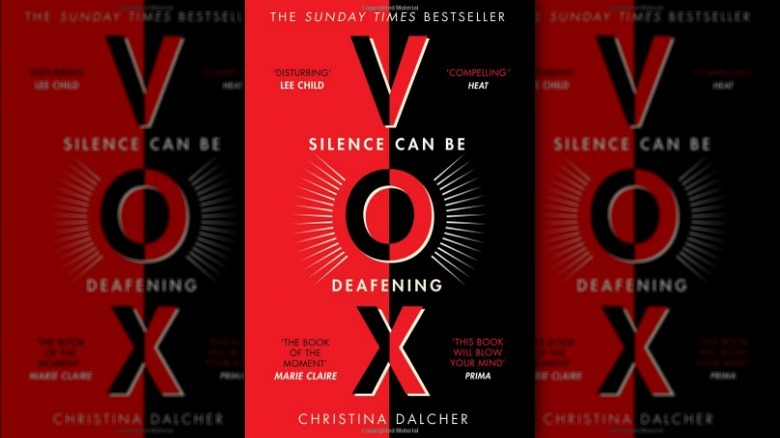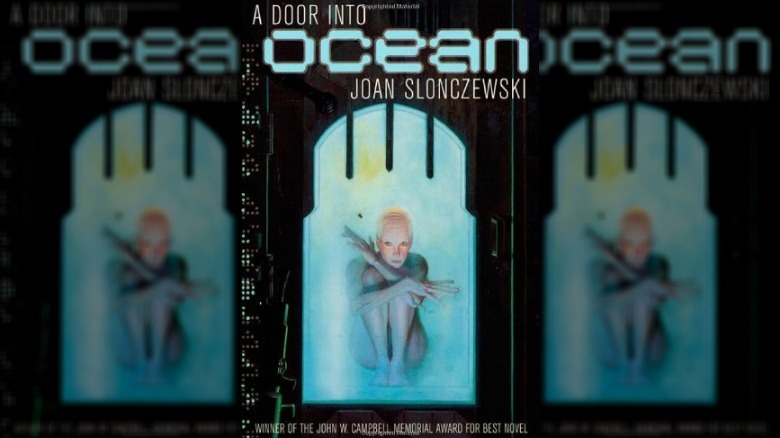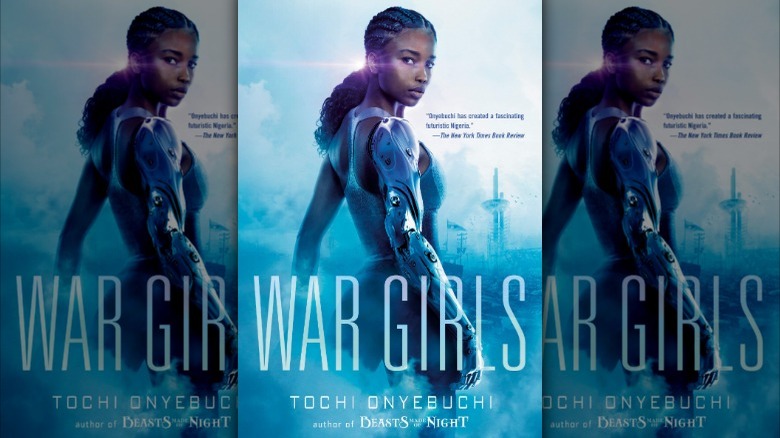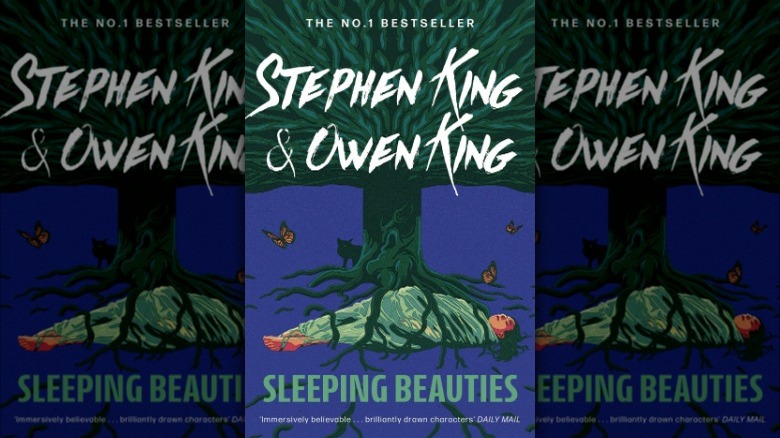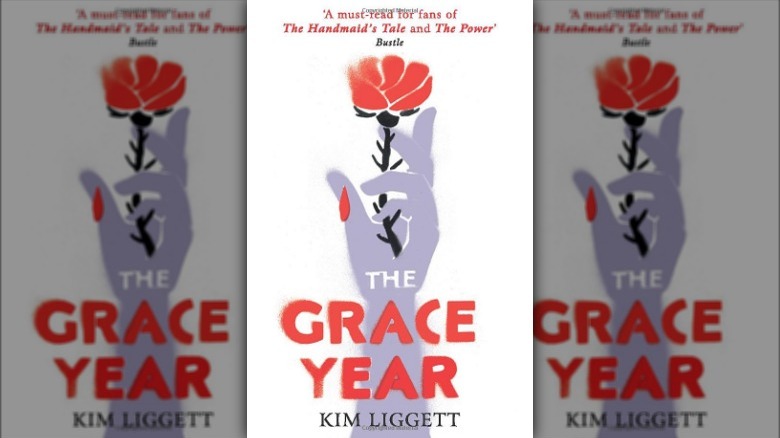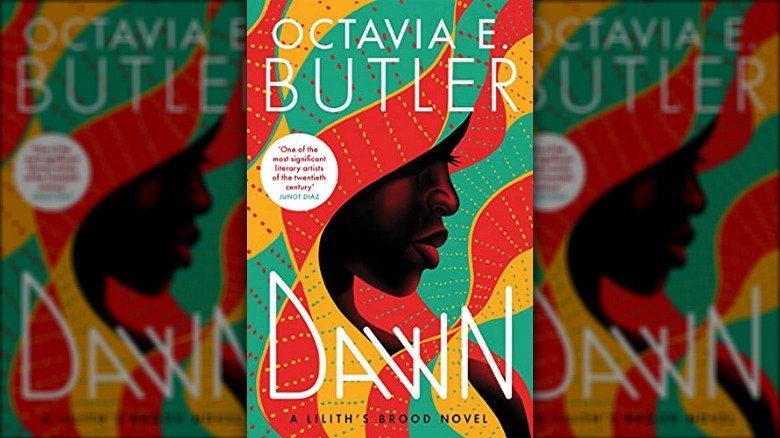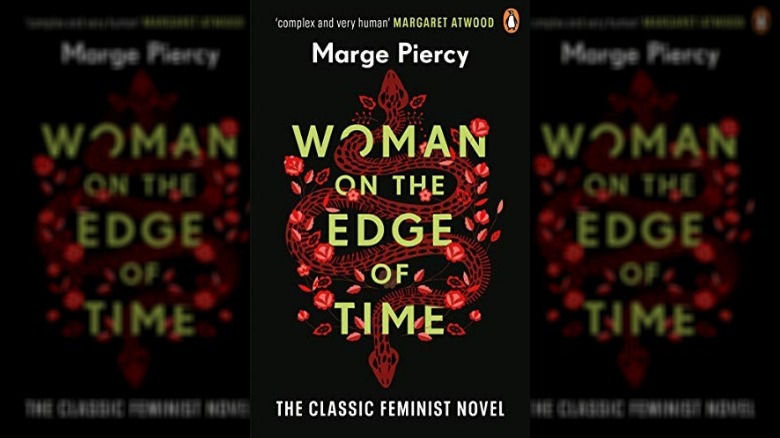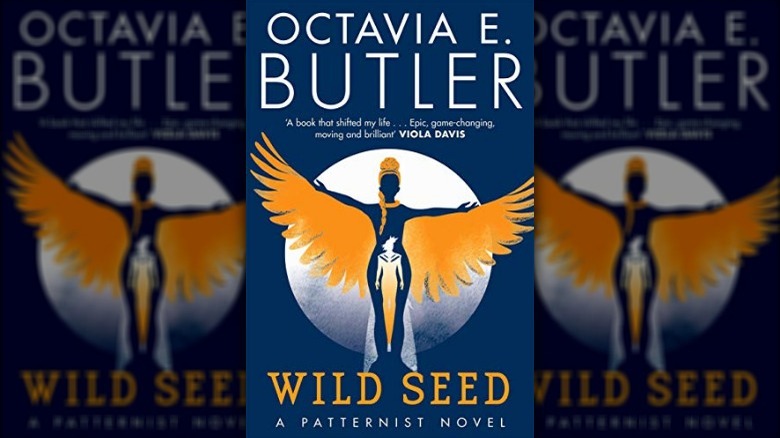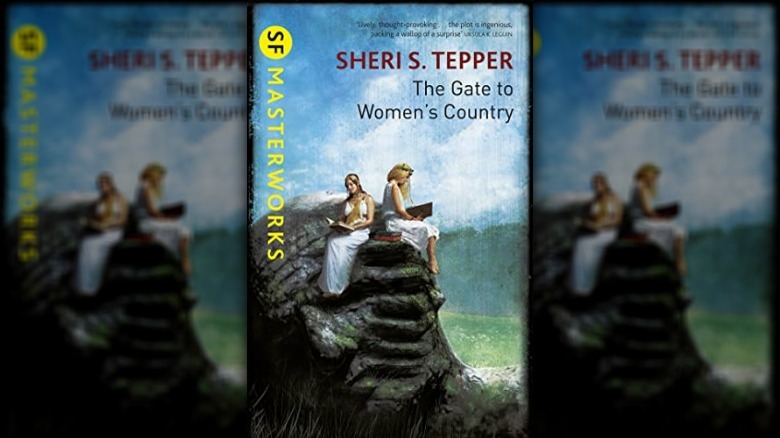10 Feminist Sci-Fi Books That Smash The Male-Driven Genre
We may receive a commission on purchases made from links.
It's safe to say that the world of sci-fi is often dominated by cis men. From writers, to readers, to characters, all too often, it's all about the Y chromosome. In fact, in 2016, The Guardian reported that, according to nonprofit research, media coverage in sci-fi literary journals was disproportionately dominated by men.
The nonprofit, Vida, discovered that the majority of book reviews in sci-fi magazines were written by men, about books written by men. After looking at 18 magazines, Vida found in 12, 60% or more of the reviews were written by people who identified as male.
But Women.com is here to combat that. We want to see the light shone on more sci-fi books from those who identify as women. So we're highlighting some of our very favorite novels that bust the patriarchy and are either written by women, for women, about women, or feature the strong female leads we love to see.
Vox by Christina Dalcher
Often likened to "The Handmaid's Tale," the 2018 sci-fi thriller "Vox" explores a world in which women are only allowed to speak 100 words a day. After a new government takes over, women are suddenly stripped of all their rights, including being able to work, access their own money, or drive. Not only that, but the new leaders have determined that young girls will no longer be taught basic skills like being able to read or write, and any woman who tries to speak more than their allocation of 100 daily words is punished with an intense shock of electricity through their system.
The novel, which was actually Christina Dalcher's first, made quite the impact on the literary world, and was even voted into third place in the Goodreads Choice Awards for Sci-Fi in 2018. "I wrote 'Vox' as a cautionary tale about gender politics, backlash and cultural shift," Dalcher told Evening Standard in 2018. "'Vox' is related to women banding together so it's timely," she added.
A Door into Ocean by Joan Slonczewski
Far away and years into the future, a community of women known as the Sharers of Shora inhabit a planet covered in water in "A Door into the Ocean" by Joan Slonczewski. They live a totally different existence to the one we know on Earth — since the group is only made up of women, they are able to reproduce without men. The women have created their own tranquil existence, as they're extremely skilled in biology, and lead a largely pacifist existence full of kindness and sharing. However, the very existence of the Sharers of Shora is threatened when another community declares war.
As the winner of the 1987 John W. Campbell Memorial Award for Best Science Fiction Novel, "A Door into Ocean" highlights something that is oh-so-relevant still today — patriarchy and violence. That's something Slonczewski saw a lot of at the time of writing, too.
"In the book, the Valan culture that was more violent also had polar ideas of gender identity, whereas the Sharers lacked gender identity. And so, I connected gender polarities with violence, that gender polarities could be a source of violence. Especially where you have power differentials," she told Nonviolence Radio in 2022. "So, if you assume that there's always someone in power, then that power has to be reinforced over the other side. And in general, it's males having power over females. And that was what I saw in American culture at the time."
War Girls by Tochi Onyebuchi
In the 2019 novel "War Girls," author Tochi Onyebuchi tells the story of two sisters, Onyii and Ify, who are separated by the 2172 Nigerian Civil War. The book is set in a terrifying dystopian future version of Nigeria that's been destroyed by serious dangers we're currently facing in the world today, including climate change. In this dangerous setting, the sisters have to fight against the odds to find each other again, as people and androids fight each other using technology we can thus far only imagine in the real world.
Onyebuchi opened up about his passion for turning the sci-fi genre on its head in a 2020 interview with Clarkesworld, explaining, "Dreams and nightmares, no matter how much their thermodynamic laws may differ from that of our lived reality, bear an internal logic, and it's an internal logic I see in the speculative fiction I read and watch, so my aim (subconsciously, at least) has been to create a story with internal logic."
He also opened up about his decision to have women as the lead characters, explaining that putting women, particularly Black women, at the forefront of many of his novels is something he's extremely passionate about. "I want to write things I haven't seen before or haven't seen enough of, and these stories with Black female characters front and center are foremost among them," he shared.
Sleeping Beauties by Stephen King and Owen King
Written by Stephen King (yes, that one!) and his son, Owen King, "Sleeping Beauties" asks what would really happen if women around the world started going into mysterious deep sleeps that can't be prevented. In their deep sleep dreams, the women are transported away to a tranquil place, but, back in the future, the disease actually forces them to viciously attack people. The occurrence (or global pandemic, if you will) happens because of a strange phenomenon known as Aurora, and the book focuses on a woman named Eve who is somehow immune to Aurora's powers. No wonder the sci-fi/horror book was the winner of the Goodreads Choice Award for Horror!
Although the book is set in the future, Owen explained to NPR that there's still an obvious difference between the experiences of the women in the 2017 book and that of the men. "It's not as if the world that [the women] find themselves in becomes some sort of matriarchal utopia. An incredible number of things go wrong for them, but what's different about the world where the women end up is that in spite of all these challenges, in spite of all these things that go wrong, they never give up, they never lose focus," he shared.
The Grace Year by Kim Liggett
If you're a fan of "The Handmaid's Tale," then "The Grace Year" by Kim Liggett should be next on your reading list. The book is set in a similar dystopian future to that in the 1985 novel turned TV show, but brings the idea to a whole new generation. It tells the story of a group of teenagers, and one in particular named Tierney, who are sent away into a forest because of the effect they have on men. The teens are essentially banished from civilization for a year and directed to be purified of their magical powers so they can be cleansed and then return home, ready to be married off.
If the book already sounds familiar, but you haven't gotten around to reading it just yet, that could well be because it's set to be made into a movie, as Deadline reported in 2019. None other than "Pitch Perfect" and "The Hunger Games" star Elizabeth Banks was tapped to direct and produce the big screen adaptation through Universal.
Dawn by Octavia Butler
One of the older books on our list, 1987's "Dawn" imagines a future in which the Earth as we know it no longer exists, following an unimaginable fire. The central character in Octavia Butler's novel is a woman named Lilith Iyapo, who is all alone without her family after losing them in the devastation, only to find she's been taken aboard a spaceship. It turns out that aliens, known as the Oankali, have actually been monitoring the world for a long time with the aim of saving and improving the human race. It then becomes Iyapo's job to survive as best she can alongside the alien species, as well as take it on her shoulders to keep humanity alive and, hopefully, create a new beginning for the human race.
"Dawn" is actually one of three books Butler wrote in a collection of sci-fi thrillers published in the late 1980s with important messages. "Dawn" was the first, with the novels "Adulthood Rites" and "Imago" following.
Woman On The Edge Of Time by Marge Piercy
Written all the way back in 1976 with a focus on what the future could look like, the Marge Piercy novel "Woman On The Edge Of Time" is one of the most talked about feminist sci-fi books ever written. In the book, Connie Ramos is wrongly confined to a mental health unit after her friends and family give up on her. Something to know about Ramos, though? She can see into the future, and soon finds herself communicating with someone living in the year 2137.
The book was such a hit that Piercy wrote a new introduction for the it for its 40th anniversary in 2016, in which she reflected on how society has changed, and sadly moved backward in many ways, since the book's initial release.
"At the time I wrote this novel, women were making huge gains in control of their bodies and their lives. Not only has that momentum been lost, but many of the rights we worked so hard to secure are being taken from us by Congress and state legislatures every year," she shared. "But we must also understand that the attempt to take away a woman's control over her body is part of a larger attempt to take away any real control from most of the population."
Wild Seed by Octavia Butler
Another book by the iconic Octavia Butler, "Wild Seed," is about two immortal alien beings called Doro and Anyanwu who have special powers. Doro can inhabit or kill any human and uses his powers to breed people who are psychic. Anyanwu, a shape-shifter, embarks on a romance with Doro, helping him to see the error of his ways. Anyanwu is a Black woman, giving "Wild Seed" a strong Black female lead.
That makes it perfect for an adaptation, which is exactly what it's reported to be getting. In 2019, Deadline confirmed that "Wild Seed" would be turned into a TV series set to air on Prime Video, from Viola Davis and Julius Tennon's production company, JuVee Productions. Davis had nothing but praise for the sci-fit hit novel when the deal was announced.
"Wild Seed is a book that shifted my life. It is as epic, as game-changing, as moving and brilliant as any Science Fiction novel ever written," she said at the time. "Julius and I are proud to have this masterpiece in our hands. It fullfills our promise and legacy to be disrupters. Octavia Butler was a visionary and we look forward to honoring the scope of her work and sharing it with the world."
The Gate to Women's Country by Sheri S. Tepper
Sheri S. Tepper imagines a feminist dystopia set after the holocaust in her 1988 book, "The Gate to Women's Country." In the novel, we follow the life of Stavia, who lives in a world in which there are only two political beliefs to choose from based on the sexes. People can live in a polygamist sect ruled by men, or they can live in a matriarchy-driven society called Women's Country, where there are few men and women run things.
Due to the strong feminist themes in her books, Tepper opened up about her ideas for how women in society can be better respected while talking about her work to Locus Mag all the way back in 1998. And it's safe to say her thoughts, and to the same extent her book, are still just as relevant today. The author suggested that individual states could have a man and a woman in power.
"All issues to do with men ought to be decided by the male legislature, and all issues to do with women by the female legislature. And then there should be joint committees to work out any problems, and the male and female presidents should operate as sort of a team," she said. "This would give women what they ought to have: absolute numerical parity in the political process."
Herland by Charlotte Perkins Gilman
"Herland" sees the world make a shocking discovery when a sociology student finds a society made entirely of women in a remote area. The most surprising part is that they're able to reproduce without the male race, and they've created somewhat of a self-contained utopia — with no patriarchy or war. Though the book is somewhat dated due to its age (it was actually originally published as a magazine serial all the way back in 1915, before becoming a book in 1979), the novel is an important read to show how attitudes have changed since then — and why it's imperative we don't move backward.
Speaking about Gilman's sometimes forgotten work, Alfred Bendixen, founder and executive director of the American Literature Association, explained that, while they may not follow the same themes and highlight the same points as today, Gilman's authorship was important. "[Her books] have gained a significant readership as early examples of a feminist critique of American and world culture," he said while speaking to Libraries of America. "These works invite us to question our own presumptions about the worlds in which we live and travel."

